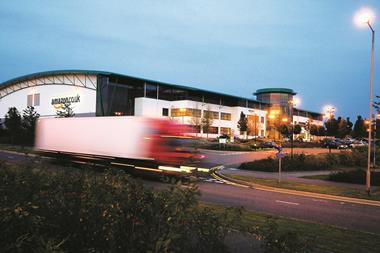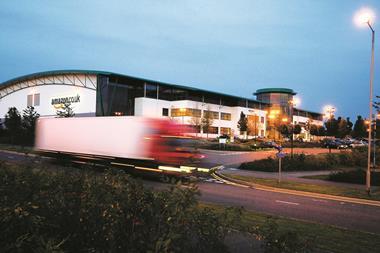- Amazon mulls acquisition of German airport
- Etailer has already leased 20 freighter planes
- Amazon now calls itself a “business transportation provider”
Amazon is mulling a move to acquire an airport in Germany as it accelerates plans to operate its own fleet of delivery aeroplanes.
The US etail titan has been in negotiations with the owners of Hahn airport in Frankfurt – a loss-making site that is currently up for sale.
According to reports in Germany, Amazon is among the parties that have declared an interest in snapping up the airport.
Three other offers have already been lodged by unnamed rival bidders, meaning Amazon faces stiff competition to take the next step in its fulfilment drive.
The airport would provide the online giant with a European hub, from which it could deliver goods via aircraft across the continent. It is already piloting plans to deliver goods to customers’ homes via drones.
Amazon is bidding to build its own logistics and freight transportation service – a move that analysts in the US have suggested would reduce its reliance on third-party delivery partners including FedEx and UPS, and eventually allow it to compete directly with them.
Earlier this year, Amazon inked a deal to lease 20 Boeing 767 freighter planes to boost its delivery capacity and help it fulfil the one and two-day delivery pledges it makes to shoppers.
Amazon has already run a trial in Ohio, which involves the retailer leasing jets to deliver some goods, while internal documents leaked to the media back in February revealed the etailer’s long-term ambitions for the logistics division, under which “sellers will no longer book with DHL, UPS or FedEx but will book directly with Amazon”.
In its latest annual report unveiled in January, Amazon took the step of referring to itself as a “transportation service provider” for the first time.
However, Amazon’s chief financial officer Brian Olsavsky insisted on a recent conference call that the etailer wants to supplement existing shippers by expanding its own delivery network, rather than replacing them.
Amazon declined to comment.


























No comments yet